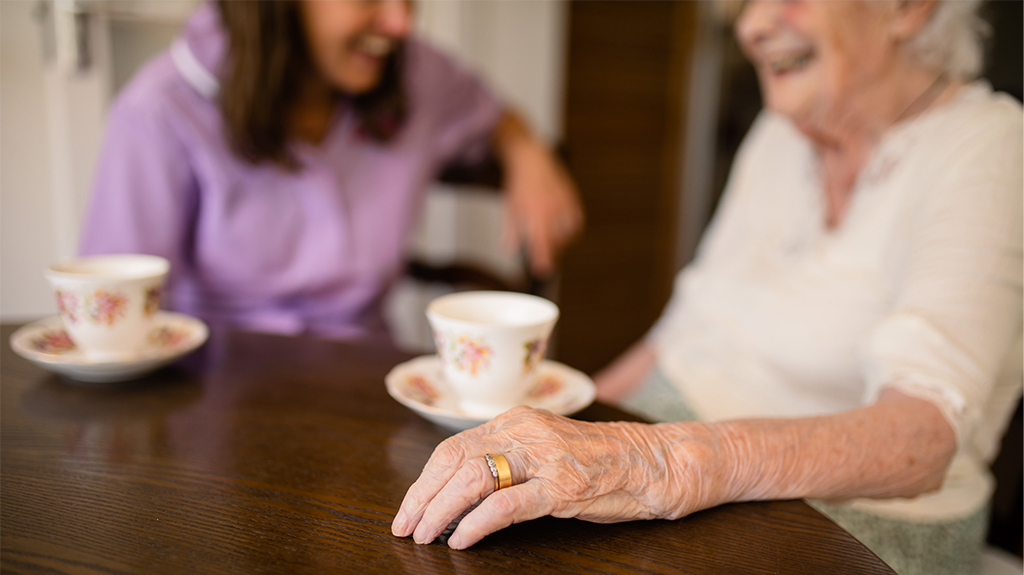
A sector-leading home care, live-in care and specialist care services provider, Guardian Angel Carers, has created a user-friendly checklist of symptoms and signs that a loved one, older person in the community or relative may require personalised help at home.
Guardian Angel Carers explains that there is a core need to broaden awareness of the sometimes subtle signs that a person, especially if living alone, is struggling to cope, with an aim of highlighting when compassionate care interventions may be essential to safeguarding well-being.
The Importance of Arranging In-Home Care Support at the Right Time
Crises in health and social care have prompted many families to delay seeking help or assume that care services are unavailable to meet their needs. The latest data shows that:
2.6 million familial carers have had to leave employment to cope with the demands of caring for a loved one.
Over 2 million adults over 75 live without care support, and more than half report spending more than a month without contact with anyone else.
The projected shortage of accommodation spaces in residential care facilities is expected to reach over 64,000 by the end of this year – with some families in need of supported care unaware of home care assistance as a viable alternative.
Guardian Angel Carers has published its concise guide to educate families about the potential factors that indicate a need for home care, particularly if they recognise more than one sign or have ongoing concerns and are unsure whether the time is right to request professional support.
Physical, Behavioural and Cognitive Changes That Indicate a Need for Home Care
The firm's care professionals have collated the most common symptoms that should be discussed with the person before making decisions about their care—but also that shouldn’t be ignored.
It indicates that a challenging conversation may be essential to protecting the welfare of a person who is at risk of isolation or becoming vulnerable.
Physical Changes: Reduced movement and mobility are natural signs of ageing, but where a person seems to find standing challenging, has problems eating or drinking, has lost a noticeable amount of weight, hasn't maintained their normal appearance and dressing habits, or has bruises indicative of a fall, this may mean care support is essential.
Behavioural Changes: Withdrawing from activities and social groups and being reluctant to leave home can indicate anxiety and concerns. Similarly, becoming reluctant to discuss things, losing interest in favourite shows, or missing vital medications and bill payments may all prompt a conversation about the importance of supportive care.
Cognitive Changes: Forgetfulness is often perceived as an obvious symptom of dementia or Alzheimer’s but can also be natural and expected in older age. Extended and repeated memory loss, an inability to keep track of medications or appointments, confusion and distress, and any changes to reasoning and emotions may be more relevant.
Families, partners and loved ones are advised to contact their nearest home care team to organise a convenient time to discuss concerns, learn about flexible, tailored care, or access advice about varied types of care if any of these signs sound familiar.
Guidance for Families Evaluating The Need for Private Home Care
MD of Franchise at Guardian Angel Carers, Vikki Craig-Vickers notes that 'Spotting the signs that a loved one is in need of additional support in and around their home is often hardest for their families, who may not notice gradual changes that occur slowly and over extended periods.
It is almost always beneficial to get a care structure in place earlier rather than later. This gives our CareAngels and local care managers ample time to discuss the needs of each person and family, match their requirements with our care teams, and create detailed, personalised care plans.
Depending on the care needs we identify together, it may also be worth having occasional visiting care before a cognitive condition progresses, which can smooth the transition to receiving home help, where a carer is a known, trusted, and familiar face.
Our checklist is intended to provide information and advice to assist with this complex and difficult decision-making but isn’t exhaustive.
If you or your family are concerned about the appropriateness of a home care support service, need guidance implementing the right level of care, or want to speak to an independent, professional care team, please don’t hesitate to reach out to your local Guardian Angel Carers branch.’
Guardian Angel Carers is an established, regulated home care provider with 15 franchise-based territories throughout England and Wales. The firm offers visiting, live-in, overnight, and specialist care adapted to each client, focusing on family-feel and person-first support.
Read more about Guardian Angel Carers - Guardian Angel Carers Opens New High Street Office in Chichester
About Guardian Angel Carers
Guardian Angel Carers is a leading home care provider dedicated to delivering compassionate, personalised care services. With a strong focus on independence, dignity, and quality of life, the company supports individuals in the comfort of their own homes, offering a range of services from companionship to complex care needs.
Media Contact:
Vikki Craig-Vickers
03333 660550
www.gacarers.co.uk
******
Source Company – https://www.gacarers.co.uk/







